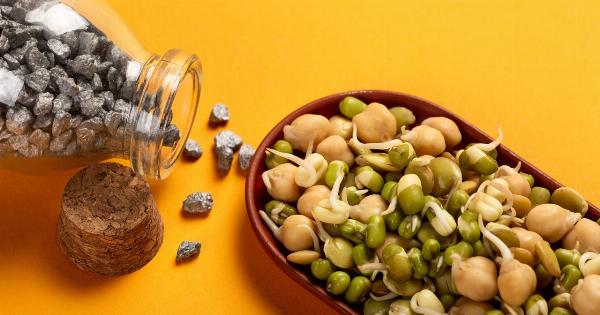Legumes are a group of vegetables that includes beans, lentils, and peas. They are known for their high fiber and protein content. Legumes have been shown to have a major impact on lowering ‘bad’ cholesterol.
What is Cholesterol?
Cholesterol is a type of fat that is found in the blood. It is important for the body to have some cholesterol, but too much of it can be harmful.
There are two types of cholesterol: low-density lipoprotein (LDL) cholesterol and high-density lipoprotein (HDL) cholesterol. LDL cholesterol is known as ‘bad’ cholesterol because it can build up in the arteries and increase the risk of heart disease.
HDL cholesterol is known as ‘good’ cholesterol because it helps remove LDL cholesterol from the arteries.
How do Legumes Lower Cholesterol?
Legumes are rich in soluble fiber, a type of fiber that dissolves in water and forms a gel-like substance in the intestines. This gel-like substance binds with cholesterol in the intestines and prevents it from being absorbed into the bloodstream.
As a result, less LDL cholesterol enters the bloodstream, which reduces the risk of heart disease.
What are the Best Types of Legumes for Lowering Cholesterol?
All types of legumes can help lower cholesterol, but some are more effective than others. Here are some of the best types of legumes for lowering cholesterol:.
Black Beans
Black beans are a great source of fiber, protein, and antioxidants. They are also low in fat and calories. One cup of black beans contains about 15 grams of fiber, which is about half of the recommended daily intake.
Lentils
Lentils are packed with protein, fiber, and nutrients. They are also low in calories and fat. One cup of lentils contains about 16 grams of fiber and 18 grams of protein. Lentils are also rich in iron, which is important for healthy blood circulation.
Chickpeas
Chickpeas, also known as garbanzo beans, are a great source of protein, fiber, and minerals. They are also low in fat and calories. One cup of chickpeas contains about 12 grams of fiber and 15 grams of protein.
Chickpeas are also rich in folate, a nutrient that is important for healthy cell growth.
Peas
Peas are a good source of protein, fiber, and essential vitamins and minerals. They are low in fat and calories, making them a great addition to any diet. One cup of peas contains about 9 grams of fiber and 8 grams of protein.
Peas are also rich in vitamin C, which helps boost the immune system.
Soybeans
Soybeans are a great source of protein, fiber, and minerals. They are also low in fat and calories. One cup of soybeans contains about 10 grams of fiber and 22 grams of protein.
Soybeans are also rich in antioxidants, which help protect the body against damage from free radicals.
Conclusion
Legumes are a great addition to any diet, especially for those who are looking to lower their cholesterol levels. They are rich in fiber, protein, and essential nutrients, making them a healthy and nutritious food choice.
Adding legumes to your diet can help reduce your risk of heart disease and other health problems associated with high cholesterol.
























